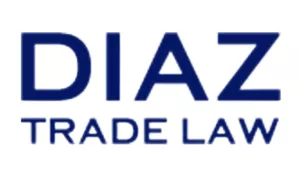The United States enforces antiboycott laws designed to address foreign government's economic boycotts of countries friendly to the U.S. Antiboycott laws have been on the books since the 1970s and are primarily enforced by the U.S. Department of Commerce's Bureau of Industry and Security.
What Are the U.S. Antiboycott Laws?
"Anti-boycott" refers to U.S. laws and regulations that discourage and, in certain cases, prohibit U.S. persons from participating in unsanctioned foreign boycotts, particularly those targeting countries friendly to the United States.
BIS is charged with administering and enforcing this policy under the Anti-Boycott Act of 2018, the Export Control Reform Act of 2018, and the Export Administration Regulations.
The antiboycott laws aim to prevent U.S. persons from advancing foreign policies of other nations that run counter to U.S. policy.
Prohibited Antiboycott Activities Under the EAR
Part 760 of the EAR specifies prohibited antiboycott activities including:
- Refusals or agreements to refuse to do business with or in a boycotted country or with blacklisted companies.
- Discrimination or agreements to discriminate against a U.S. person based on race, religion, sex, or national origin.
- Furnishing information or agreements to furnish information about business relationships with or in a boycotted country or with blacklisted companies.
- Furnishing information or agreements to furnish information about the race, religion, sex, or national origin of a U.S. person.
- Implementation of letters of credit containing prohibited boycott terms or conditions.
- Taking actions with the intent to evade Part 760 of the EAR.
Required Reporting
Section 760.5 of the EAR requires U.S. persons to report receipts of boycott requests and requests they have received to take certain actions to comply with, further, or support an unsanctioned foreign boycott. Reports may be filed electronically or by mail, but they must be postmarked or electronically date-stamped by the last day of the month following the calendar quarter in which the underlying request was received.
Boycott Requestor List
BIS regularly updates and publishes a Boycott Requester List to assist U.S. persons in fulfilling the reporting requirements of the antiboycott regulations. The list also aims to raise awareness regarding certain sources of boycott-related requests. Entities on the list have been reported to BIS on a boycott request report form as having made a boycott-related request in connection with a transaction in the interstate or foreign commerce of the United States. The list is updated quarterly.
A party's inclusion on the Requester List does not mean that U.S. persons are restricted from dealing with the listed party. Rather, U.S. persons are on notice that the listed party is more likely to make reportable boycott-related requests.
Getting Removed from the Boycott Requestor List
Exporters and other businesses rely on the Boycott Requestor list to inform their compliance efforts. Thus, any company that ends up on the list is likely to have its operations severely impacted. Since BIS relies on reports to maintain the list, inadvertent inclusion can and does happen.
To date, BIS has not established a formal process for list removal and routinely removes entities from the list. BIS directs entities who believe they have been included in error to contact the Office of Antiboycott Compliance (OAC) directly. While entities should conduct an internal investigation to determine what conduct may have resulted in a report, in some cases, entities may need to file a Freedom of Information Request to uncover the reason for the report.
Penalties
The Export Control Reform Act specifies both criminal and administrative penalties for violations of the Anti-Boycott Act of 2018.
BIS may impose the following administrative penalties:
- A monetary penalty in the amount of the greater of approximately $300,000 per violation or twice the value of the underlying transaction;
- Denial of export privileges; and/or
- Revocation of any BIS export licenses.
For violations that occurred prior to August 13, 2018, penalties may be imposed under the International Emergency Economic Powers Act (IEEPA). The maximum monetary penalty under IEEPA for each violation is the greater of $307,922 per violation or twice the value of the transaction that forms the basis of the violation.
The U.S. Government may impose the following criminal penalties:
- Up to $1 million on individuals or companies for a criminal antiboycott violation.
- Individuals may additionally (or alternatively) face up to 20 years of imprisonment.
Voluntary Self-Disclosures
BIS encourages U.S. persons to file a voluntary self-disclosure (VSD) if they believe they may have violated the antiboycott laws. Section 764.8 of the EAR sets out procedures for filing a disclosure including the timing of filing, the contents of the initial notification of a VSD, the subsequent narrative account of the violation(s), and certification of any representations made in connection with the VSD. The provision also describes supporting documentation that should accompany a VSD filing.
After receipt and review of the disclosure, OAC will inform the filing party of any action it intends to take. Before filing a VSD it is critical to seek legal counsel to ensure filing is the best course of action and that your disclosure properly captures the nature of the violation(s).
Looking Ahead: BIS Enforcement
laIn late 2022 the agency announced a renewed focus on enforcement that includes higher penalties. Since then, BIS has issued several updates to its antiboycott enforcement policies and procedures including the establishment of the Boycott Requestor List and a July 2023 memo strengthening antiboycott reporting measures.
Companies of all sizes should ensure they have compliance processes in place to detect boycott requests and avoid any activity that furthers a boycott.
The content of this article is intended to provide a general guide to the subject matter. Specialist advice should be sought about your specific circumstances.


